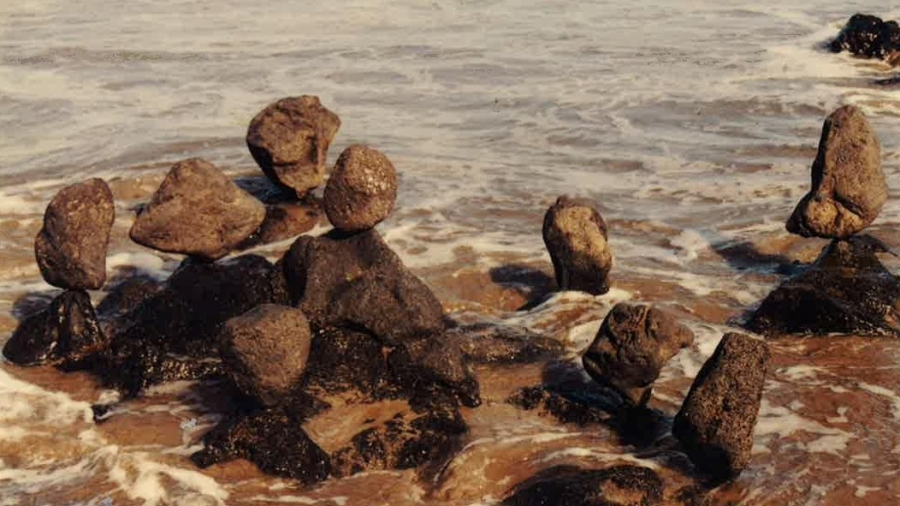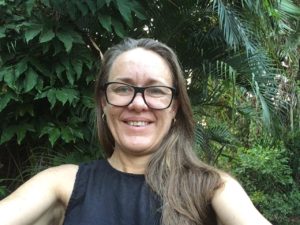
The bold and beautiful, Josephine Lee
My guest on Episode 3 of ‘Talk the Walk’ is Josephine Lee. Josephine is a Gudjula woman from North Queensland whose social worker career spands almost 30 years. Jo is committed to anti-oppressive, anti-racist, therapeutic and relationship-based practices as well as creative and hope-focused practices.
In true traditional style, this ended up feeling like a yarn around the campfire, than an interview. Josephine takes us on a deep journey into her life growing up and how this has shaped the person she is today. Her biggest influences on her social work practice is life itself. This includes in her words
“moments of suffering that you think you cannot get through; moments of joy that you think you cannot believe has happened; good people; lessons learnt from bad; being given opportunities; being brave to take up the opportunities; forgiving yourself when you stuff up, learn and grow; kindness is a strength; beautiful art, music, writing, and so many things that have contributed to hope focussed approach; talk with belief, especially to those who have given up.”
It was truly a privilege to hear Josephine’s raw and honest account of the struggles in life and work. Josephine is unashamedly and unapologetically frank in her assessment of the state of social work and humanity on the planet. If you want to hear the brutal truth about what an Aboriginal social worker really thinks about our white middle class profession, but in a gentle kind way, then you’re in the right place.
This episode explores:
• What is hope-focused practice and how it differs from strengths based practice
• The impact of Aboriginal policy and racism on Jo’s family history which ultimately shapes her practice and her life
• Jo’s view of the world as a ‘social justice cake’
• The circumstances that led to Jo taking up social work as a career
• Jo’s reflection on her own personal experience of social workers involved in her childhood
• Lessons on responsibility and what social justice in action really means
• Special photos that have significance to Jo’s life and work (see below)
• Child removal as the impact of colonisation
• Cautions for social workers following the current trends in treatment without bringing a cultural lens and critical reflection
• The traps that white middle class social workers might fall into which leads to hopelessness and helplessness
• A blunt warning for social workers who don’t enter Aboriginal communities with respect
• What it means to walk alongside someone on a painful but healing journey of self discovery for deep nourishment and flourishment to happen
• The power of narrative therapy in working with Indigenous clients
• What is reflective social work practice REALLY
• Black empowerment theory and why it’s greater than feminist theory
“If you walk softly on this Mother Earth, you have tried your best to take care for her, and all life, and you did so with dignity and grace — that is a truly well-lived life.” – Josephine Lee, July 2017
Josephine speaks about the following photographs in this interview.
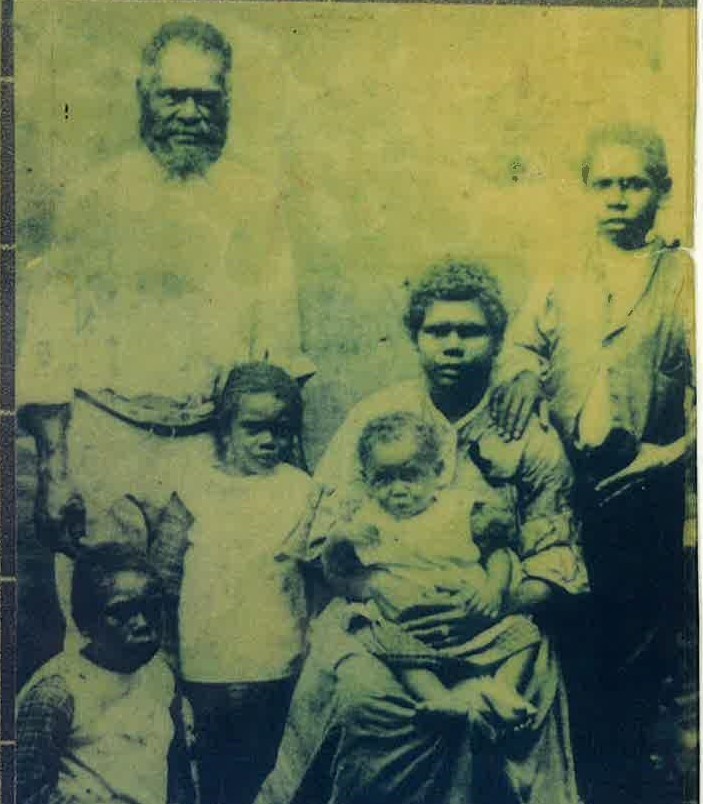
Josephine’s maternal side of the family.
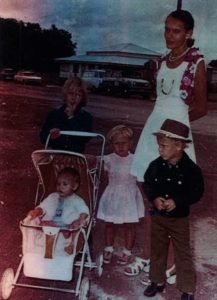
Josephine with her mother and siblings.
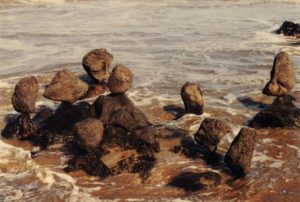
An artists interpretation of family surrounded by wild waters.

The picture a client identified as to what being happy with life looks like.
Please note, due to the length of this interview, it has been split into two parts. Tune in next week to hear the final part of our conversation.
Warning: occasional explicit language.
Just click on the Play Button below and enjoy! We hope to have ‘Talk the Walk’ listed on popular podcatchers like iTunes very soon. Or subscribe by email via our Home Page.
Don’t forget, if you or someone you know would make a great interview on ‘Talk the Walk’ send us an email from the Contact Page.
Things to follow up after the episode
Various Books by Christine Fejo King
About Wayne McCashen and the ‘Strengths Approach’
‘Black Empowerment: Social Work in Oppressed Communities’ by African American social worker, Barbara Bryant Solomon
Podcast: Play in new window | Download
Subscribe: RSS

